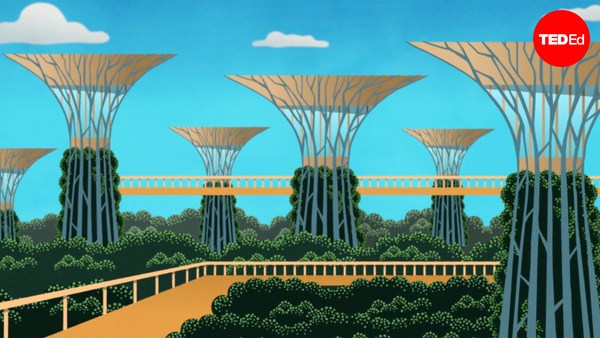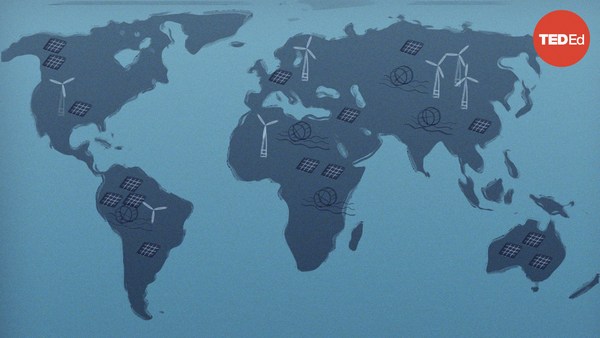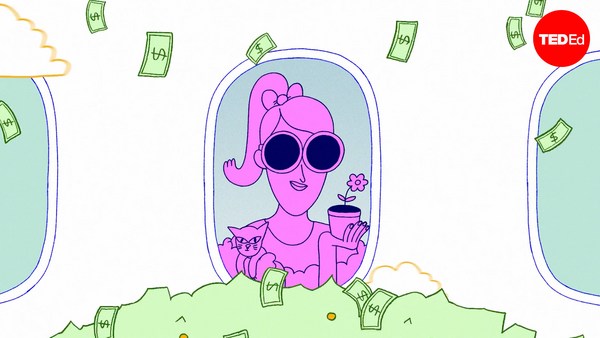Imagine you live in a remote village where the only source of water is delivered monthly by truck. This, of course, costs money. But then you discover a massive water source below the village: limitless water, but currently unreachable. To access it, you’d need to dig a well. That would cost years’ worth of water trucking fees, But once built, you and all future generations would have unlimited water— for only the minor cost of maintaining the well.
So, what’s the best way forward? Continue trucking in water? Or build the well?
Is the trillion dollar price tag that comes with transitioning the world to clean energy worth the cost of investment?
Like the trucked in water, fossil fuels aren't free. There are the costs of the actual fuels, which, adjusted for inflation, haven't changed much for 140 years. And then there are the costs of maintaining and updating our extensive fossil fuel infrastructure. On the other hand, the wind, water, and sunlight needed to power renewables are all free and in unlimited supply, just like the village’s newly discovered water table. There’s just the upfront cost of building infrastructure to harness them. To fully transition to a green economy, we'd also need to invest in electrifying entire industries, building new renewable energy plants, deploying large-scale energy storage, and more.
Back in the early 2000s, most economic models predicted those costs to be completely impractical and prohibitively expensive. For example, one model estimated that solar power would be about $157 per megawatt-hour in the 2020s, which is far more expensive than coal was projected to cost.
But a slow revolution has been happening over the past two decades. In the early 2000, some countries like Germany and China and some tech companies decided to invest huge sums of money in solar infrastructure. This led to more research and development, which brought the costs down far below what even the most optimistic model had predicted. Today, solar is 84% cheaper than that early model projected it would be— making it cheaper than power from coal in much of the world. This change is so dramatic that some economists now think switching to renewable energy quickly could save trillions of dollars in the next three decades— despite the upfront cost.
And of course, there’s another important cost to consider. Global warming is very, very expensive: extreme weather, rising sea levels, crop failures, health issues, and industry disruptions all cost money. Coming back to our village example, it would be as if the more water you truck in, the more that traffic degrades the road— ruts get deeper, sides erode, maybe part of it falls away in a landslide. Eventually the road would become unusable.
Economists have also tried to predict how expensive future warming will be. The widely cited DICE model posits that the cost of climate change-induced damage rises approximately as a function of global average temperatures squared. So if temperatures rise by two degrees, costs rise by roughly a factor of four. In other words, these models assume that costs will rise smoothly and continuously.
But many economists today argue that assumption is wrong, because it ignores catastrophic events like the collapse of the Amazon, melting of polar and Greenland ice, and widespread crop failures, just to name a few. Any of these would cause huge, sharp spikes in costs. In fact, the US government keeps track of climate disasters that incur more than $1 billion in damages, and since 1980 they’ve already recorded 400 of these events. The total bill is estimated to be an eye-watering $2.8 trillion— just in the US. For decades, the argument in favor of transitioning to a green economy was “let’s take the financial hit now; it’s hard, but it’ll protect the world for future generations.” But that argument relied on economic modeling that underestimated the costs of a warming world and overestimated the costs of transitioning.
We now know the economic outlook is different. Making the investment to transition not only protects the world for future generations, it also saves us money in our own lifetime. It's just the most logical thing to do.


